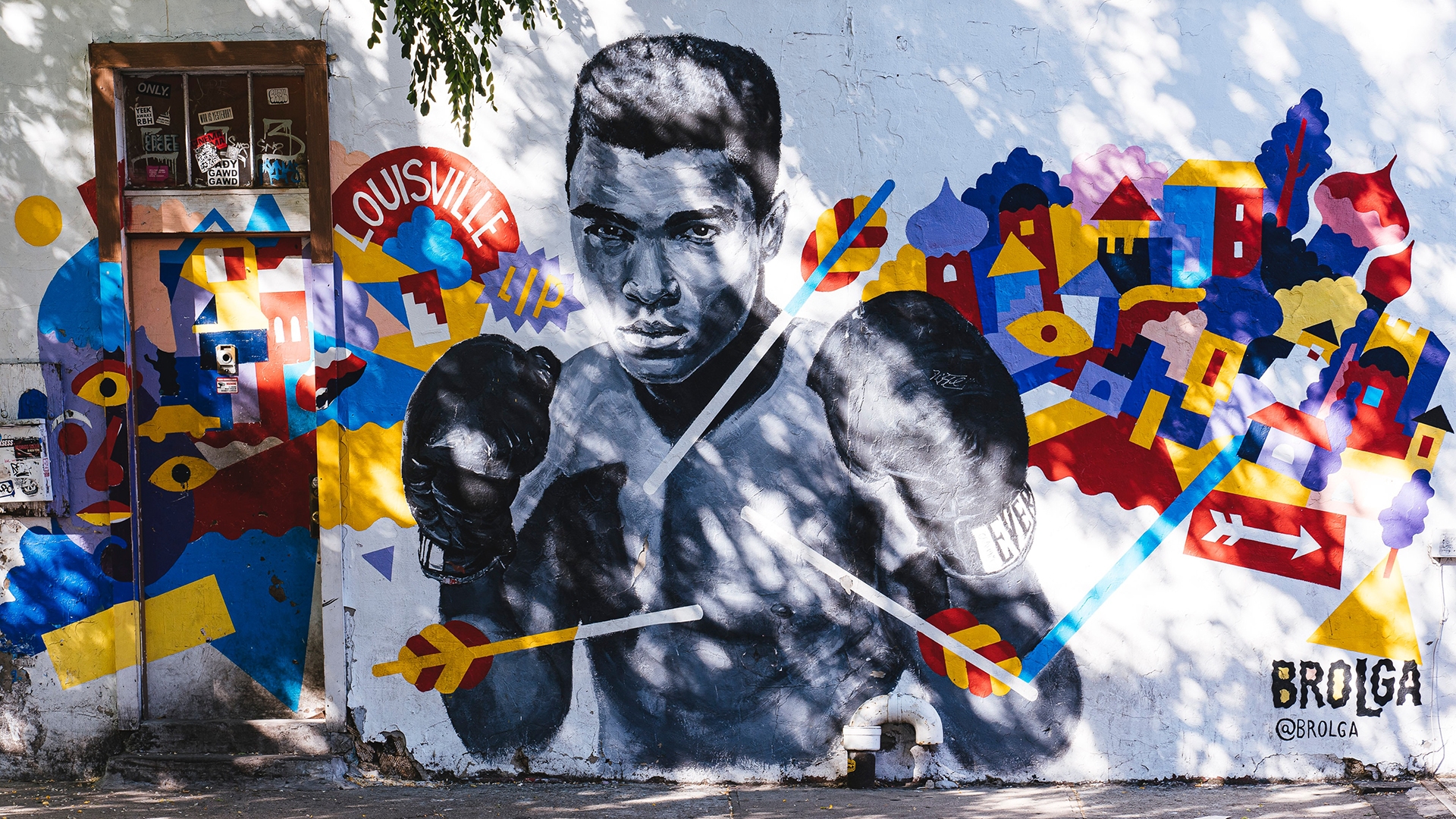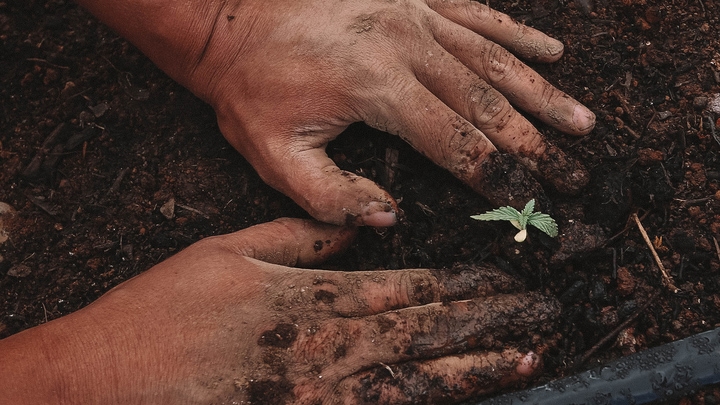
Float Like a Butterfly, Sting Like a Bee.
The legacy of Muhammad Ali is alive in his hometown of Louisville, Kentucky — and his presence is bigger than ever as the Muhammad Ali Index measures and encourages compassion across the country and around the world.
By The Foundation for a Better Life
Muhammad Ali changed the sport of boxing with his deft moves, unconventional strategies, jackhammer punches and mouth that always seemed to be in gear. His passion was bigger than the ring, and his character never wavered, not in the face of being drafted into the controversial Vietnam War, not when he wanted to “whup” the thief that stole his bicycle when he was 12 years old.
Wanting to right that earliest injustice set Ali on a path that would take him to two national Golden Gloves titles and a gold medal in the 1960 Rome Olympic Games at age 18. At 22, he defeated the heavily favored brawler Sonny Liston for the world heavyweight title.
The brash kid from Kentucky quickly made a name for himself. He was articulate, spouted rhyming couplets and mugged for the camera in a day when decorum was the rule. He mussed the hair of buttoned-down commentator Howard Cosell and kept up with the bellicose sports personality line for line in interviews.
But it was Ali’s unyielding conviction that earned him the most attention. He refused to fight in a war he saw as senseless and political when there was so much injustice at home. He converted to Islam, committing to a strict religious regimen and a lifelong pursuit of using his platform to help others.
“That’s who he was,” remembers Greg Fischer, 12-year mayor of Louisville and now advisor on the Muhammad Ali Index. “He saw the news of a man threatening to jump from a building and ran over to talk him off the ledge. He often stopped his entourage to help somebody. He delivered groceries to widows, visited hospitals and schools. He even flew to Iran to help negotiate the release of American hostages. Famous or not, that was his true character.”
As entertaining as he was, as controversial as he was at the time, as surgical as he was in the ring, he was, in essence, a hurricane of good. His religious convictions got him arrested and stripped of his heavyweight title. But it didn’t slow down his opinions or dampen his determination and compassion.
“Only 40% of the Muhammad Ali Center is focused on his athletic prowess,” says Fischer. “The bulk is devoted to his leadership principles, his humanitarian efforts, his work in civil rights. There are three values that guided my administration in Louisville: Lifelong learning. Health. And compassion. There is no greater manifestation of these values than the champ. Not only here locally, but all over the world. Ali was a voice of compassion in a fractious time. It is that foundation the Muhammad Ali Index is built on. Compassion is a human value we are all born with. It is a muscle we need to continually develop.”
More than just providing goods and services to underserved communities, the Muhammad Ali Index’s mission is to help people change their behavior to affect lasting and sustainable change in communities.
“The Muhammad Ali Index reports on the state of compassion in America. We started with 12 pilot cities and have grown to 20 areas that include urban and rural regions to see where America is, right now,” explains Fischer. “We are also moving internationally, talking to countries that are looking for lasting solutions.”
One of the purposes of the Index is to teach compassion, so members of communities become interdependent. When one is in need, the community supports them. That person becomes self-sufficient and rises to the point of giving back. The community — and the commitment — becomes self-perpetuating.
“Neuroscience shows that the more compassionate you are, the happier you are. There’s a direct link between brain health and compassion. It’s a gift that keeps on giving,” Fischer continues.
Teaching compassion, including self-compassion, connecting networks of resources and using an average kid from Louisville who grew up to be the greatest boxer of all time for inspiration is the vision of the Muhammad Ali Index.
Relationships. Resources. Accountability. Measured progress.
“Service to others is the rent you pay for your room here on earth,” Muhammad Ali once said. It all starts with compassion and continues with a plan of action.
Be a Champion… PassItOn.com®
Copyright ©2025 The Foundation for a Better Life. All rights reserved. Available under a Creative Commons Attribution NonCommercial-NoDerivatives 4.0 License (international): https://creativecommons.org/licenses/by-nc-nd/4.0/
The Foundation for a Better Life, a 501(c)(3) non-profit organization, gives your newspaper permission to publish these stories in print and electronic media (excluding audio and video), provided the stories are published in their entirety, without modification and including the copyright notice. For any modification, permission must first be obtained from the Foundation by emailing media-relations@passiton.com. Thank you.
We add new stories each month. If you'd like to be notified when we publish new stories, enter your information below.




